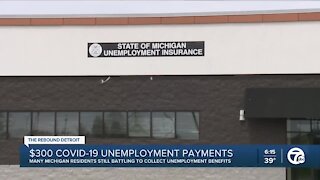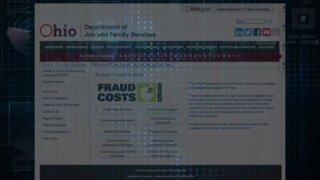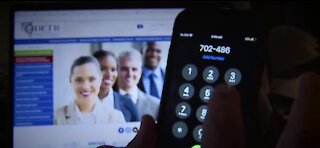Premium Only Content

Scammers have taken $36 billion in fraudulent unemployment payments from American workers, PPP Loans
#Scam #UI #UnemploymentInsurance #PPP #PPPLoan #GavinNewsom #TomBrady #DonaldTrump #FrenchLaundry
The U.S. has pumped billions of dollars into the unemployment system since the spring — a magnet for criminals that’s led to surging theft and fraud attacks. This has contributed to at least $36 billion being taken from out-of-work Americans.
Now, the federal government and states are clamping down. The $900 billion Covid relief package signed last month adds steps for workers to prove their eligibility for benefits.
But those rules may slow aid to those who need the money, according to labor officials and worker advocates.
“It’s a little bit of a high wire act,” said Bill McCamley, Cabinet secretary of the New Mexico Department of Workforce Solutions. “Because there’s so much pressure to get money out.”
Most of the theft has focused on Pandemic Unemployment Assistance, a temporary program created by the federal CARES Act in March. It offers unemployment benefits to workers who don’t ordinarily qualify, like the self-employed, gig workers, freelancers, contractors and part-timers.
Con artists are attracted to a potentially hefty payday — perhaps more than $10,000 or $20,000 per fraudulent claim — and lax security measures initially put in place to rush money to ailing Americans.
By early November, at least $36 billion of the $360 billion in CARES Act unemployment benefits was lost to improper payments, mostly from fraud, according to a conservative estimate from the Office of the Inspector General for the Department of Labor.
Investigations related to unemployment benefits account for 70% of the watchdog’s caseload — nearly six times the level before the coronavirus pandemic.
“This is the largest fraud attack on the U.S. ever. Period,” said Blake Hall, founder and chief executive of ID.me, which offers an identity verification service to more than a dozen state unemployment agencies. “And it’s not even close.”
Fraudulent claims for benefits can account for roughly 35% to 40% of new applications in some states with generous weekly payouts, Hall said. International organized crime rings from countries like China, Ghana, Nigeria and Russia account for most attacks, he said.
Their fraud can take many forms. The most common is identity theft, whereby criminals steal personal data to file a claim in someone else’s name, Hall said. In some similar scams, attackers convince victims to verify their identity to get a job or win a prize.
Rich benefits
The U.S. government issued benefit recipients an extra $600 a week on top of standard pay for four months through July, and then $300 a week for six weeks. Applicants could back-date claims to get the full run of those stipends.
PUA applicants could also self-certify their qualifications to receive aid, in contrast with the more rigorous checks and balances states place on traditional aid.
Those policies were coupled with state agencies hobbled by a lack of resources to handle historic demand for jobless benefits.
States began taking steps to cut fraud even before the recent relief package passed Congress in December.
New Mexico, for example, instituted a five-day waiting period before issuing money to check if an applicant’s bank account was connected to known criminal enterprises, according to McCamley, who heads the state unemployment agency. It auto-locked claims with suspicious activity.
These efforts to cut fraud have slowed benefits to some workers, though, he said.
“Not only are they evil thieves, they’re hurting people who need this money in their pocket right now, intensely,” McCamley said of criminals.
Delayed assistance?
Some fear new federal rules applied to the Pandemic Unemployment Assistance program, while helpful to fight fraud, may further delay assistance for the self-employed and others.
States may experience delays at first as they make necessary tweaks to their systems, according to a Labor Department spokesperson. The agency is offering funding to support these efforts and states may request more, in addition to $100 million states received in August to fight unemployment fraud, according to the official.
Current recipients will have to submit documents to verify employment — perhaps tax forms or pay stubs — within a 90-day time frame offered by the state. Applicants after Jan. 31 would have 30 days.
“This requirement is a necessary check to help address fraud and ensure program integrity,” according to the Labor Department spokesperson, who said states are accustomed to reviewing documents submitted by applicants when processing benefits.
In December, more than 8 million people were receiving benefits through the PUA program, which has been extended through mid-March.
-
 3:04
3:04
WGBA
4 years agoThe Rebound: Unemployment scammers
49 -
 2:59
2:59
WXYZ
4 years ago$300 COVID-19 unemployment payments
52 -
 2:45
2:45
WEWS
4 years agoIn-Depth: Fraudulent Ohio unemployment claims spike in 2021
18 -
 2:17
2:17
WEWS
4 years agoOhio borrows from Washington to make unemployment payments
17 -
 0:25
0:25
Newsy
4 years agoDOJ Alleges Facebook Discriminated Against American Workers
1.24K -
 2:46
2:46
KJRH
4 years agoOESC Investigates Fraudulent Unemployment Claims
39 -
 2:23
2:23
WEWS
4 years agoClaims of fraudulent charges have kept college student from unemployment benefits for nearly 4 months
4 -
 2:32
2:32
WPTV
4 years agoOlder workers hit hardest by pandemic-related unemployment
20 -
 2:21
2:21
KTNV
4 years agoDETR working to resolve issue that delayed unemployment payments
9 -
 1:46
1:46
KNXV
4 years agoUnemployment payments abruptly stop
17